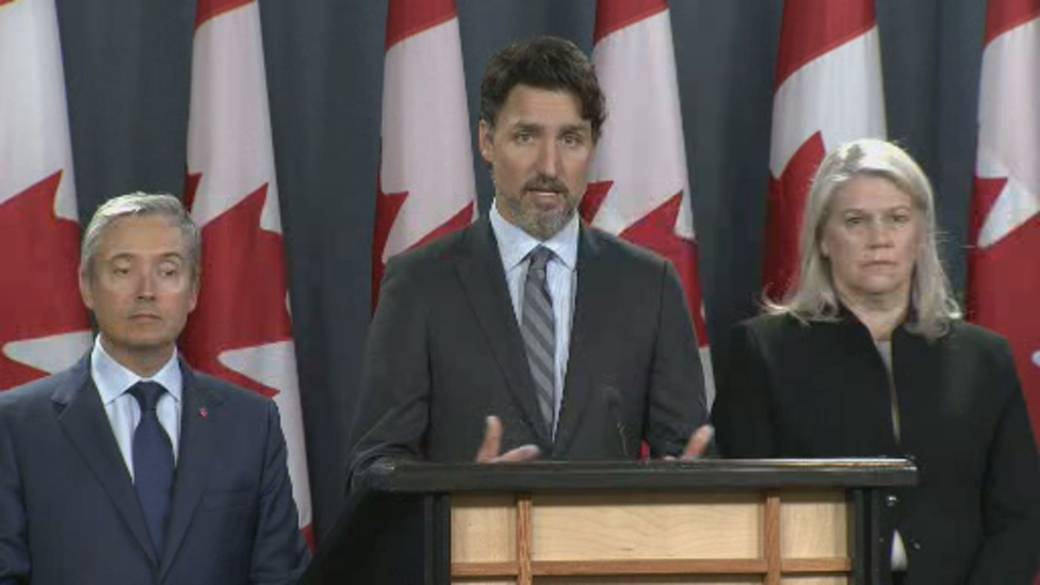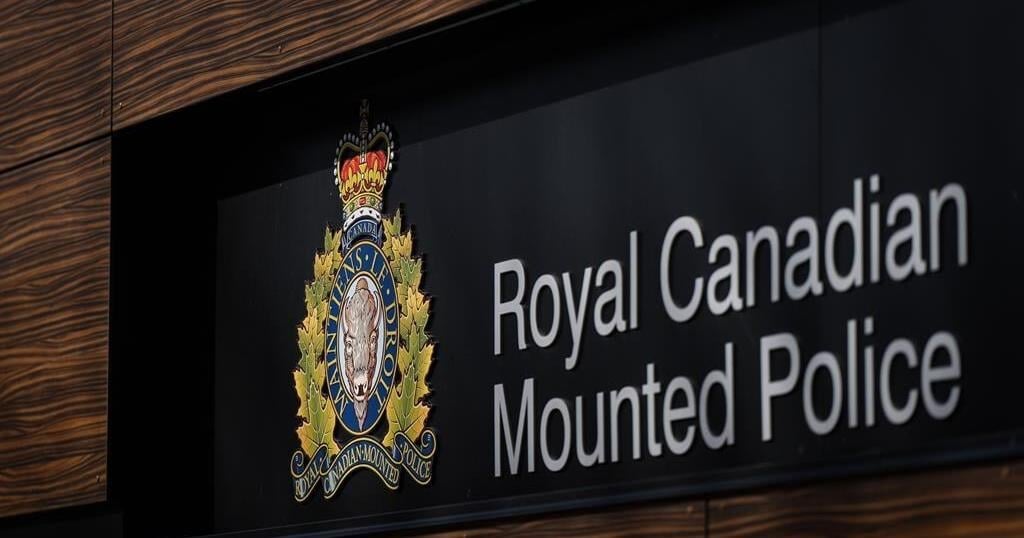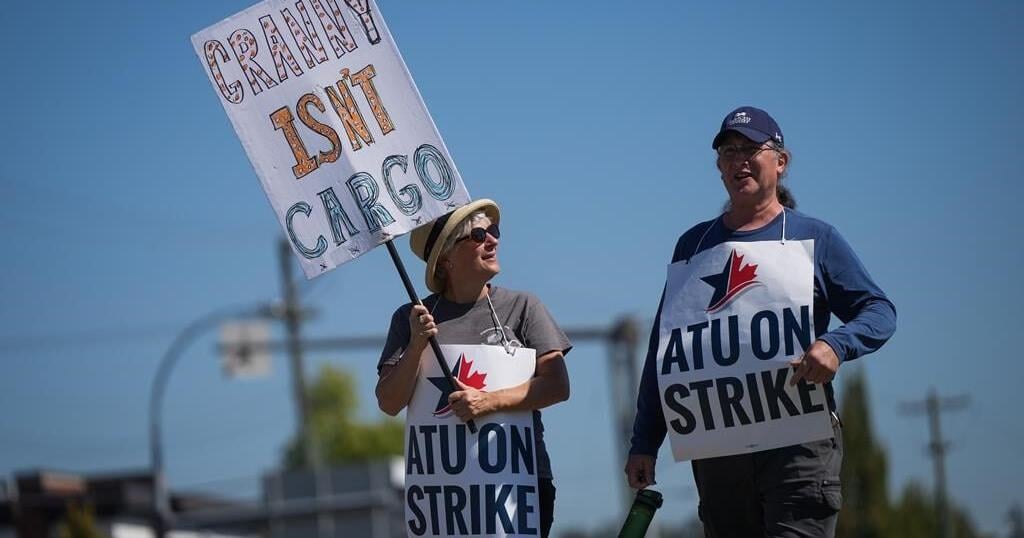The rocket attacks had been going on for months, as armed groups hostile to the United States made a nuisance of themselves, trying to signal to international coalition troops they were not welcome in Iraq.
Then the spiral began.
The U.S. killed Qassem Soleimani, the Iranian general responsible for supporting the militias behind the rocket attacks, and Tehran responded by launching more than a dozen missiles into Iraq, striking a military base where Canadian troops were stationed.
In a phone call Saturday with Iranian President Hassan Rouhani, Prime Minister Justin Trudeau condemned the Jan. 8 attack by Iran’s Revolutionary Guards that he said had “put the lives of Canadians at risk in Erbil, Iraq.”
The incident changed the risks to Canadians troops in Iraq. Instead of quietly backing militia groups targeting military facilities used by the U.S., Iran had openly entered the conflict.
“Indirect fire on coalition bases has been happening for months,” the commander of Canada’s mission, Brigadier-General Michel-Henri St-Louis, told Global News in Kuwait on Sunday.
“But in the period we’re talking about, in the last 10 days, I think it’s important to remind ourselves that there has been a significant shift.”
Tweet This
“The attacks of Iran into Iraq are a point-in-time of which there has been a movement in what the threat is, and that is significant and that is what we’re adapting to.”
Global News was not permitted to visit the Kuwaiti airbase where the Canadian Forces are stationed. Instead, Brig.-Gen. St- Louis met a reporter at the Canadian ambassador’s residence in Kuwait City.
In the interview, he described how the Canadian Forces were responding to the heightened tensions between the U.S. and Iran. He also explained why Canada’s unfinished mission needs to resume.
Until it does, however, the Canadian military’s efforts to train and build up the Iraqi security forces so they can secure the country, particularly from the resurgence of the Islamic State, have halted.
The training provided both through Operation Impact, Canada’s contribution to the U.S.-led Operation Inherent Resolve, and the NATO Mission in Iraq, are on an “operational pause.”
The troops are hunkered.
“Those two campaigns have put the training effort on pause as we calibrate ourselves, survey the force protection measures and are ready to react to whatever threat has increased in the last days,” said St-Louis, the commander of Joint Task Force Impact.
He would not disclose how many Canadian soldiers had been moved to Kuwait from Iraq, only that “troops have been repositioned in accordance to our reading of the threat in order to ensure the safety of our force.”
Kuwait is the headquarters of Canada’s mission in Iraq, which now also stretches into Jordan and Lebanon. From there, the Canadian Forces have staged the evolving fight against ISIS that began in 2014.
Initially, Canada participated in airstrikes against ISIS, then contributed helicopters and a Hercules transport plane, and later a hospital.
Since the territorial defeat of ISIS, first in northwest Iraq and then last year in northeast Syria, Canada has been focused on helping strengthen the Iraqi security forces.
The Canadians have been training the Iraqis to clear roads of improvised explosive devices in areas formerly held by ISIS, while teaching explosive ordinance disposal and communications.
To prevent the spillover of ISIS into neighboring countries, they have also been teaching winter warfare in Lebanon, and mentoring Jordan’s first all-female infantry platoon.
But as St-Louis put it, the region is “complex and volatile.”
Guards throw stun grenades at protesters after they storm U.S. embassy in Baghdad
On Dec. 27, a rocket attack on the K-1 airbase in Kirkuk killed an American contractor working as a linguist. Four U.S. troops and two members of the Iraqi security forces were injured.
The U.S. hit back hard, striking the Iranian-supported Kataib Hezbollah in Iraq and Syria, killing more than two dozen fighters and prompting a siege at the American embassy in Baghdad.
Next came the fateful U.S. drone strike on a vehicle carrying the Kataib Hezbollah leader and his Iranian benefactor Soleimani, whose clandestine Quds Force supports armed factions throughout the Middle East.
Furious over Soleimani’s killing, Iran began threatening retaliation, prompting Canada and other coalition countries to announce they would be pulling some of their troops out of Iraq to Kuwait.
“Throughout all that period, we were constantly adjusting our force posture, we were constantly assessing the threat, and making the decisions that were required to ensure the safety of the force,” St-Louis explained.![]()
Iran’s Revolutionary Guards responded early on Jan. 8, pausing Soleimani’s funeral to launch Operation Martyr Soleimani. More than a dozen missiles were fired at two military bases in Iraq.
Canadian military personnel were at one of them.
“The soldiers sought shelter and resumed the mission afterwards,” Brig.-Gen. St-Louis said.
While Iran claimed to have killed 80 and wounded 200, there were no casualties, leading to a back-up narrative that the attack was only a display of the accuracy of Iran’s missile program.
“Iran decided to conduct ballistic strikes into Iraq,” St-Louis said. “We were able to adopt the force protection posture that was required. And at the end of the day, we ensured the safety of our troops with no coalition or Canadians that were injured.”
He would not say whether the Canadian Forces were warned in advance about the missile strikes, saying that “as we are still in this complex and dangerous environment, I prefer not to clearly state what we knew, what we didn’t know.”
“I will just say that we adopted the force protection measures.”
But while Canada’s troops survived the Iranian missile barrage, hours later Iran launched another missile, this time at a passenger plane carrying 176, including 57 Canadians. None survived.
After denying for days the plane was downed by a missile, Iran finally confessed, blaming human error. “We all are grieving for those Canadians that we lost in that night,” the Brigadier-General said.
Despite political pressures in Iraq to expel the U.S. military in response to Soleimani’s killing, St-Louis said the Iraqis he deals with want the Canadians to carry on their mission.
“I think it’s important because the Iraqis continue to signify, at least at the military level to us, that they want us here,” he said.
When they could resume remains unclear.
“We’re closely coordinating with our allies in the coalition. We are in constant contact with the Iraqi security force to see what their read of the situation is. We constantly reassess the threat,” he said.
“And we are taking it one day at a time.”
Source link
Related

































